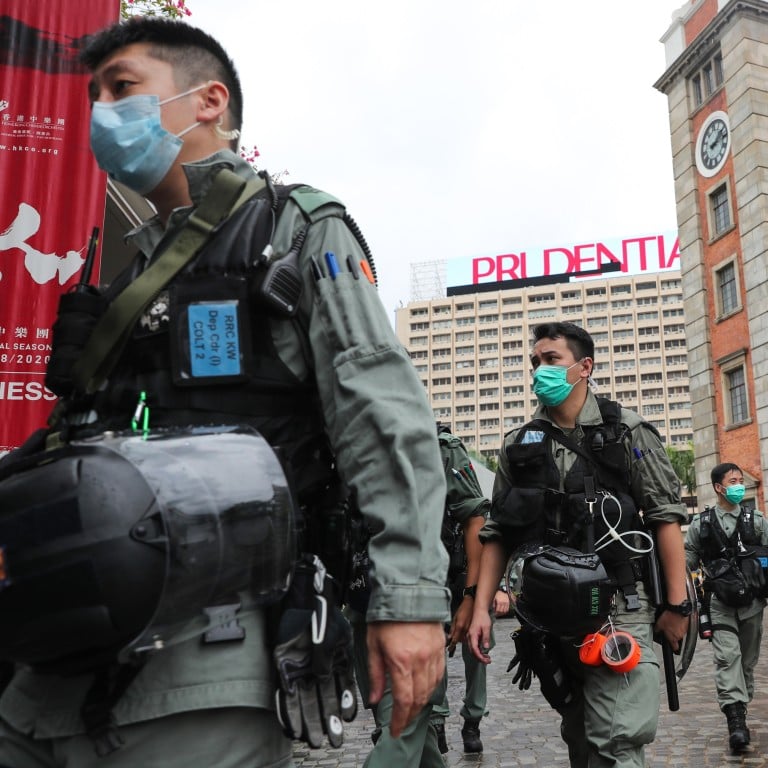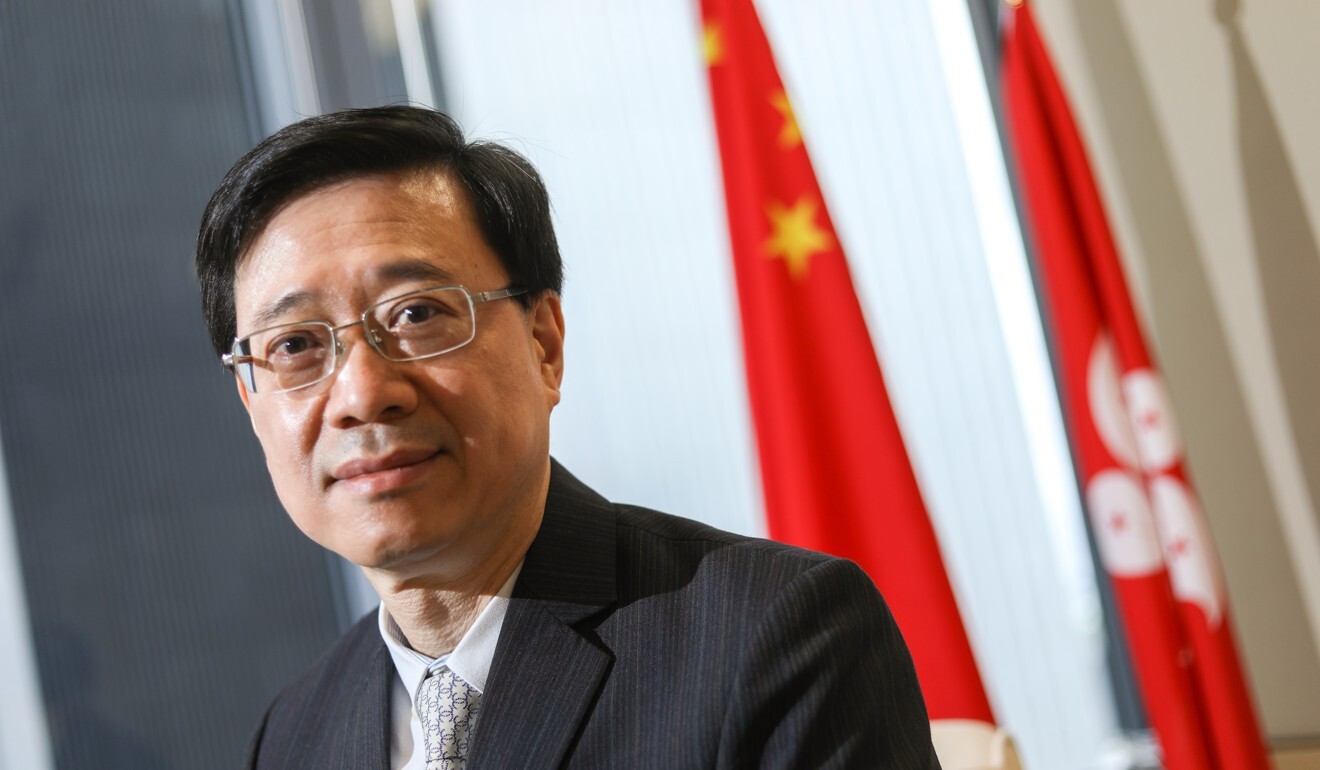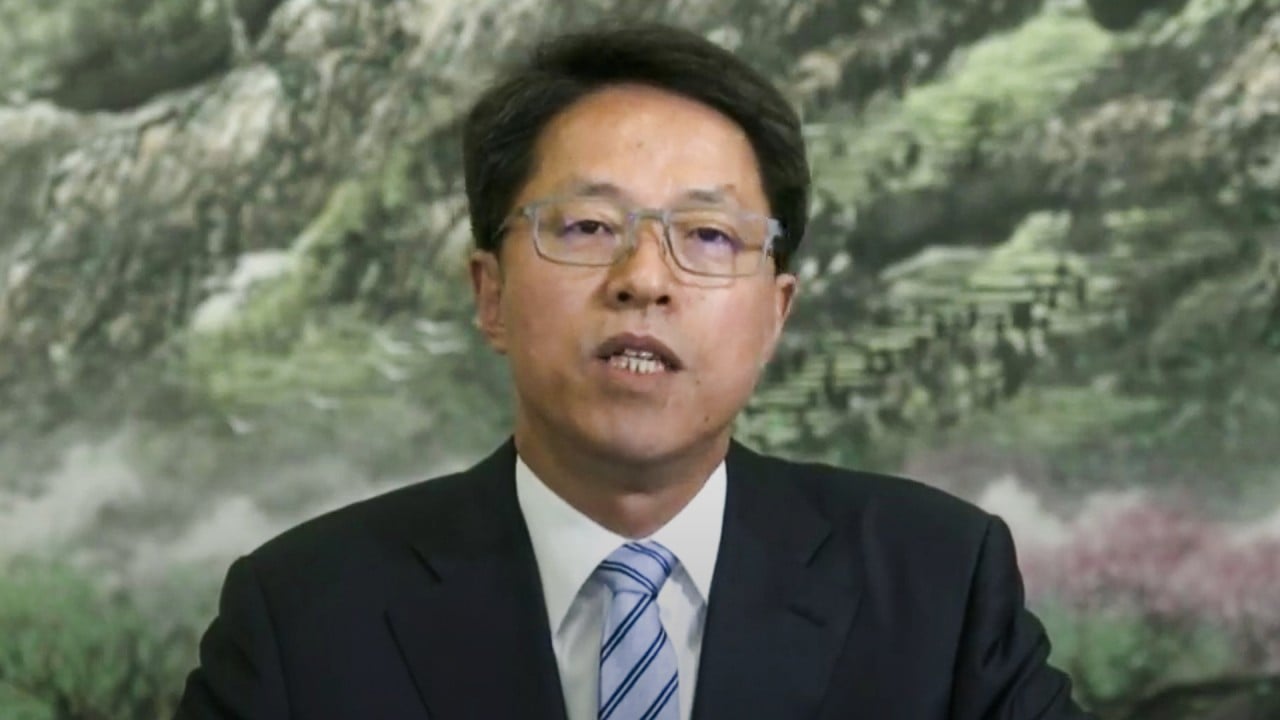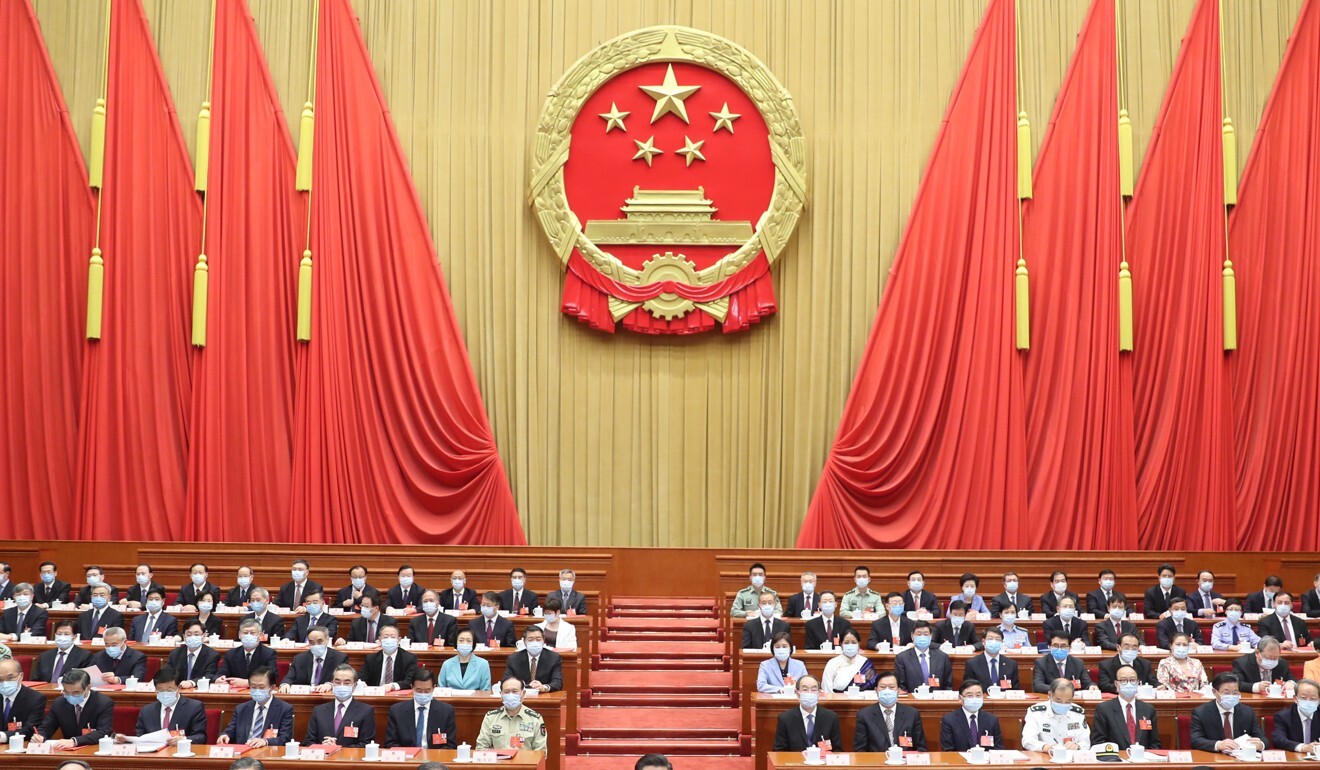
Exclusive | Hong Kong police unit dedicated to enforcing new national security law already in the works, minister reveals to Post
- New group will have intelligence gathering, investigation and training capabilities, city security chief John Lee says in exclusive interview
- But it remains unclear how local police will work with the new agency mainland security forces are widely expected to set up in Hong Kong
In an exclusive interview with the South China Morning Post on Tuesday, John Lee Ka-chiu said the new unit, under the command of police commissioner Chris Tang Ping-keung, would have intelligence gathering, investigation and training capabilities.
But he declined to elaborate on how police would work with the new agency the mainland’s national security authorities are expected to set up in Hong Kong after the law is in place.

The plan’s revelation came a week after the secretary for security joined Chief Executive Carrie Lam Cheng Yuet-ngor and top mainland officials in Beijing for discussions about the new law, which is expected to be passed as early as next week.
Explainer: What does Beijing’s new national security law for Hong Kong cover?
Under the legislation, the Hong Kong government would be required to set up new institutions to safeguard national security and also allow mainland agencies to operate in the city “when needed”.
The law has prompted widespread concerns it could effectively criminalise all forms of dissent and opposition activity, although the government has offered repeated reassurances it would only target a small, criminal minority.

03:18
Hong Kong’s national security law is like ‘anti-virus software’, top Beijing official says
The possibility of mainland agents playing a role in enforcing the law has caused further consternation.
Lee said police were planning to set up a new unit to enforce the security law, adding that work including the examination of resources, manpower and supporting equipment had already begun.
“Hong Kong police will have to set up a dedicated unit to learn how to apply the law to actual situations, and to gather intelligence and evidence in respect to activities or acts described in the law as unlawful,” he said.
While I have very strong faith in the ability of Hong Kong police to enforce the law, national security is a relatively complex subject. And now, the force is mainly dealing with crime and public order
“The new body will have intelligence-gathering capability, we’ll have investigation capability, we’ll have an action arm,” the minister said. “We should also have a strategy for the long-term development of this dedicated unit.”
Describing the new unit’s formation as a “progressive exercise”, Lee said it might begin with a “certain number of officers” and that number would grow as the need arose. He added that he would also explore the possibility of adding members of the five other disciplined services to the unit.
“While I have very strong faith in the ability of Hong Kong police to enforce the law, national security is a relatively complex subject. And now, the force is mainly dealing with crime and public order,” he said.
On May 30, Beijing’s Ministry of Public Security said it would fully guide and support Hong Kong police in safeguarding national security.
British-era Special Branch offers a hint of how local and mainland Chinese agents could help enforce Hong Kong’s new security law
“I’m sure that the mainland authorities have a much wider network of intelligence gathering and also a much higher level of analysis,” Lee said. “They have a helicopter view of the whole thing. So they will let us know the whole picture when we, as a city, may not be able to just using our information.
“And there may be good methods that have been built because of [the mainland authorities’] experience. And how international politics plays in regard to the need for protection of national security will have to come from the national level.”

Lee refused to go into details of how the working relationship between Hong Kong police and mainland agents operating in the city might function, or whether those mainland agents would enforce the law in the city.
China’s public security ministry vows to ‘fully guide’ Hong Kong police force
He stressed that there were common law principles that anyone enforcing the law in Hong Kong would have to comply with, including the presumption of innocence, right to silence and right to legal representation.
He added that Hong Kong police would share intelligence with their mainland counterparts while enforcing the new law, much as they already do.
The minister said Macau’s national security commission, set up in 2018, would be a “good reference” for implementing the law in Hong Kong.
Chaired by the city’s chief executive, the Macau commission comprises members drawn from the city’s security, police and justice chiefs. The group meets twice a year to help the government coordinate its work to uphold sovereignty, security and the advancement of the national interest.












